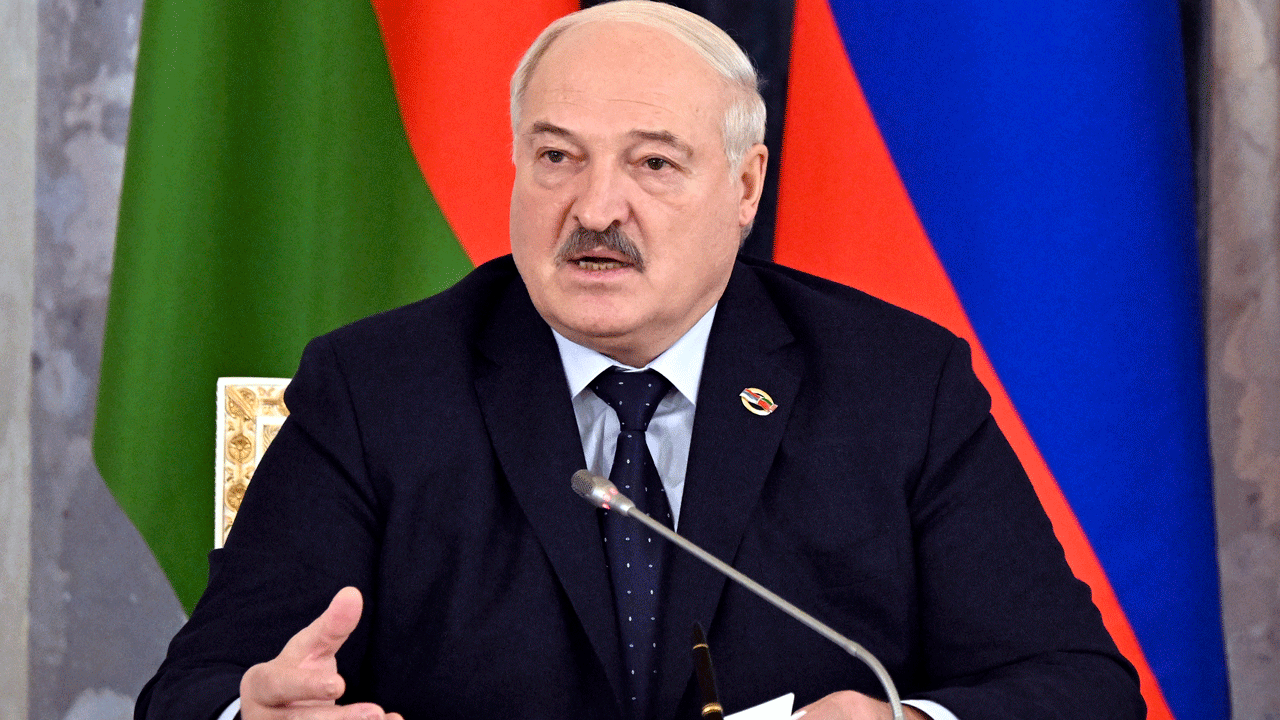Thousands of Belarusians convicted on politically-driven charges amid sweeping crackdown on dissent
Belarusian president Alexander Lukashenko has increased persecution of political dissidents as he tightens crackdowns on any dissent in the eastern European nation.

TALLINN, Estonia (AP) — Thousands of Belarusians have been convicted on politically-driven charges over the last three years as part of the authorities' relentless crackdown on dissent, the country's leading human rights group said Monday.
The Viasna human rights center said that at least 4,690 people have been convicted on politically-motivated charges since the August 2020 presidential election that fueled major protests to which the authorities responded with brutal repressions.
BELARUS TO CONSIDER BAN ON PROMOTING HOMOSEXUALITY
Viasna's representative, Pavel Sapelka, noted that the number of people who faced persecution on political motives could be higher as the group doesn't know all the convicts' names.
"The largest repressive machine of the 21st century created in the center of Europe has been gaining steam, aimed at suppression of all freedoms," Sapelka said, adding that the scale of repression in Belarus is even broader than in neighboring Russia.
According to Viasna, last year alone, at least 1,300 people faced criminal investigation on political grounds.
"Even a suspicion of disloyalty is enough to trigger political repressions," Sapelko said.
Last month, authoritarian Belarusian President Alexander Lukashenko cemented his 30-year rule in tightly controlled parliamentary and local elections, in which only loyalists were allowed to compete.
The Feb. 25 balloting was the first in Belarus since the contentious 2020 vote that handed Lukashenko his sixth term in office and sparked mass protests. The authorities responded with a sweeping crackdown, in which more than 35,000 people were arrested, thousands were beaten in police custody, and hundreds of independent media outlets and nongovernmental organizations were shut down and outlawed.
Last month's balloting was held amid a brutal crackdown on dissent. More than 1,400 political prisoners remain behind bars, including leaders of opposition parties and renowned human rights advocate Ales Bialiatski, who won the Nobel Peace Prize in 2022.
Imprisoned opposition leaders have been held incommunicado, raising fears about their condition.
Relatives of imprisoned Belarusian opposition figure Maria Kolesnikova, who is serving 11 years in prison for helping organize opposition protests, haven’t heard from her for more than a year. Also for more than a year, no one has seen or heard from Viktar Babaryka, a presidential hopeful who sought to challenge Lukashenko in 2020 but was jailed and given a 14-year prison term, or about another opposition leader serving a 14-year sentence, Mikola Statkevich.
Viasna said that at least five political prisoners died in custody over the last three years.
Lukashenko has relied on subsidies and political support from his main ally, Russia, to survive the protests. He allowed Moscow to use Belarusian territory to send troops into Ukraine in February 2022.
Sapelka noted that Belarusian authorities were specifically targeting those Belarusians who opposed Russia's war in Ukraine.
According to Viasna, at least 1,671 Belarusians have been detained for their anti-war position. At least 94 have been convicted and sentenced to prison terms ranging from one to 23 years, including those who staged sabotage acts on railways and at military air bases, the group said.
What's Your Reaction?
















